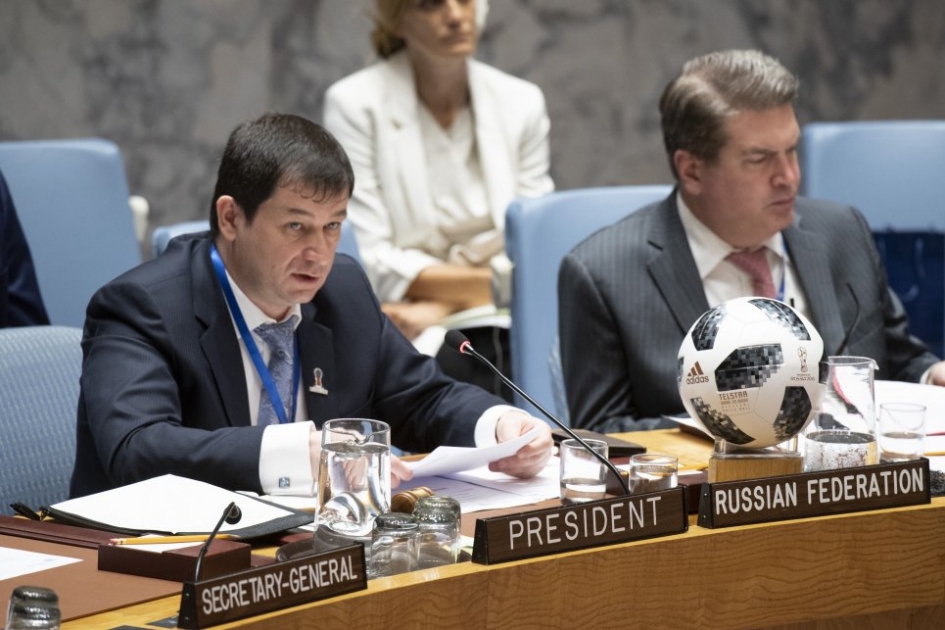Statement by Mr.Dmitry Polyansky, First Deputy Permanent Representative of the Russian Federation to the United Nations, at the Security Council on the sitiation in Mali
We would like to thank Under-Secretary-General Jean-Pierre Lacroix for his briefing.
We welcome Mr. Tiéman Hubert Coulibaly, Minister for Foreign Affairs and International Cooperation of Mali, to today’s meeting.
We support Bamako’s efforts to normalize the situation in Mali. We note that in the past few months the process of implementing the 2015 Agreement on Peace and Reconciliation in Mali has somewhat accelerated. The mixed patrols have finally been deployed to Gao, Kidal and Timbuktu and the processes for the cantonment and disarmament, demobilization and reintegration of former combatants are continuing. There have been no significant violations in the preparations for the upcoming 29 July presidential elections. In that regard, we urge all Malian stakeholders to refrain from provocative action and work together in order to ensure that they go off peacefully.
However, there are still many reasons to be concerned. The geographic scope of terrorist and extremist activity has significantly expanded and we are seeing inter-ethnic clashes. The authorities’ presence in many areas of central and northern Mali is still extremely limited, and unfortunately people’s basic social needs there are not being met, while the humanitarian situation in the country is close to the crisis levels of 2012.
In such circumstances there is nothing for the local young people to do besides joining the ranks of terrorist or criminal groups. We have carefully read the Secretary-General’s report on the situation in Mali (S/2018/541) and the independent strategic review of the United Nations Multidimensional Integrated Stabilization Mission in Mali (MINUSMA).
In general, we agree with their views and conclusions. Given the fact that in five years the crisis in Mali has not been resolved despite the peacekeeping presence there, we have to reconsider the current approach. We agree with the strategic review’s assessment that it is unlikely that the situation in the country can be normalized by military means alone.
We must focus on political mechanisms that can be developed and implemented by the Malians themselves. The only way to resolve the country’s numerous complex issues is for its citizens themselves to play a direct leading role in the processes, which of course need international and regional support. If it is backed by the Malians themselves, we believe the strategic review’s idea of a pact for peace could be a basis for making progress.
We also support the Secretary-General’s proposal to review the priority areas of MINUSMA’s work with a view to ensuring that it can fulfil its political tasks. First, however, the process should be gradual, and secondly, it should not interfere with the Mission’s task of protecting the civilian population and helping to re-establish the national security forces.
The issue of supplying the Mission with material and technical resources, including helicopters, is also very urgent, and we ask the countries that have made respective commitments to fulfil them as soon as possible. It will be difficult to achieve a settlement in Mali without normalizing the situation in the region as a whole, while the situation in the country is a significant factor for security in Africa in general.
We support the concrete steps taken by the Group of Five for the Sahel to establish their Joint Force in order to combat terrorism and organized crime, and we hope it will be fully deployed as soon as possible.
